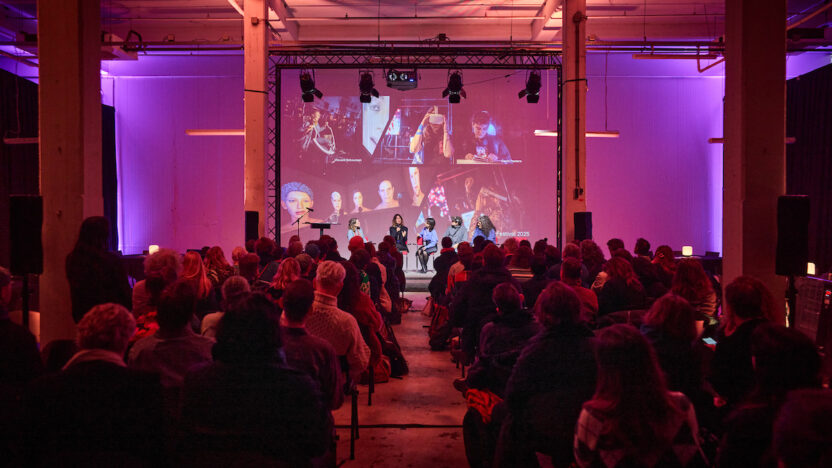“These people are seen and the stories are heard”: Tiger Short Award 2024 winners reflect on their IFFR experience
“Warm, humble, respectful, wild, unexpected, diverse, inspiring, communal, transformative.” These nine words encapsulate the IFFR experience according to Naween Noppakun, Ilir Hasanaj, and Frank Sweeney, winners of last year’s Tiger Short Awards. We spoke with them about their journey at the festival, how IFFR’s Pro Hub helped them find their feet in the international industry, and the sense of community they found at IFFR that continues to shape their filmmaking paths.
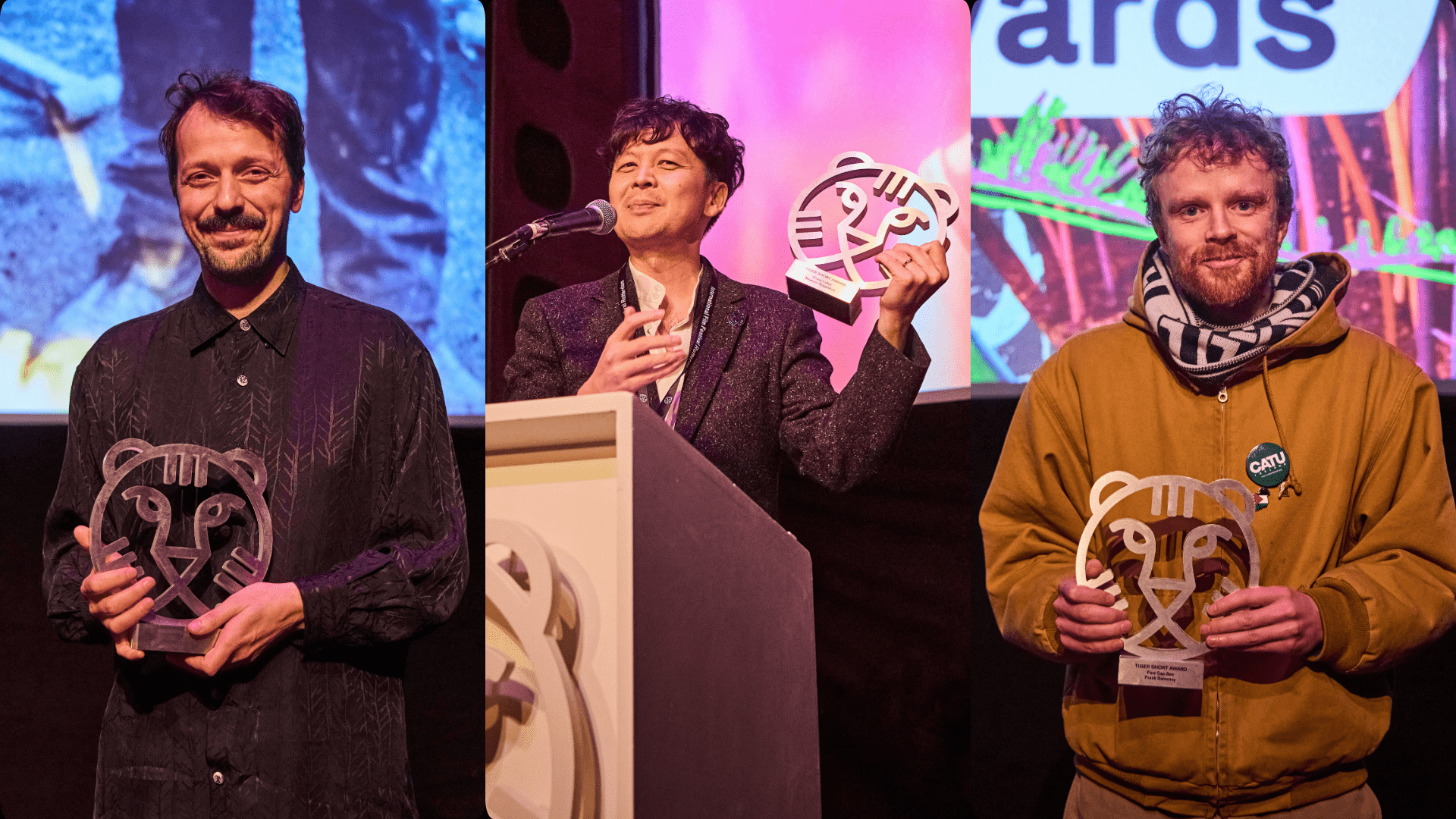
“I just tried to be myself. It was the most memorable night of my life, I will never forget it.”
Originally being a classical music composer, Naween Noppakun, who was preparing Crazy Lotus for “four years before the screening” says he wanted to “transform musical language into visual language.” Crazy Lotus presents a world where people can escape from reality by wearing Distant Heart Glasses, and was characterised by the jury as “a weird, pink, flashy and delightful oddity that will leave no one indifferent.” Naweeen explained that receiving a prize was as joyful as it was unexpected saying: “I just tried to be myself. It was the most memorable night of my life, I will never forget it.” Attending the festival for the first time last year, he enjoyed its dynamic, pointing out how inspired he was by the variety and diversity of the films that were screened, mentioning that IFFR is a perfect place for innovative films. In his own words, he wanted to be a “new organism” in the nature of filmmaking.
“I really love mid-length films, and I love creating them.”
Frank Sweeney, director of Few Can See, a film based on archival materials and reenacted footage of 1980’s Northern Ireland, shedding light on the blackout strikes that were broadcast in response to media censorship, also did not expect to win an award saying: “I’d seen most of the other shorts and I thought they were all really, really good and really strong.” The jury mentioned: “Using archival materials and oral histories to fill in what was erased through broadcast censorship, this film is a lesson in recovering the past”.
From his festival experience as a whole, Frank vividly recalls: “just meeting other filmmakers…who I ended up hanging out with at different festivals later in the year. And people who I still have kind of remained in touch with” feeling like a community around the short films was being formed. He also highlighted the festival’s willingness to embrace middle-length films, acknowledging the challenges of them finding a place within traditional programming structures. He concluded, “I really love mid-length films, and I love creating them.”
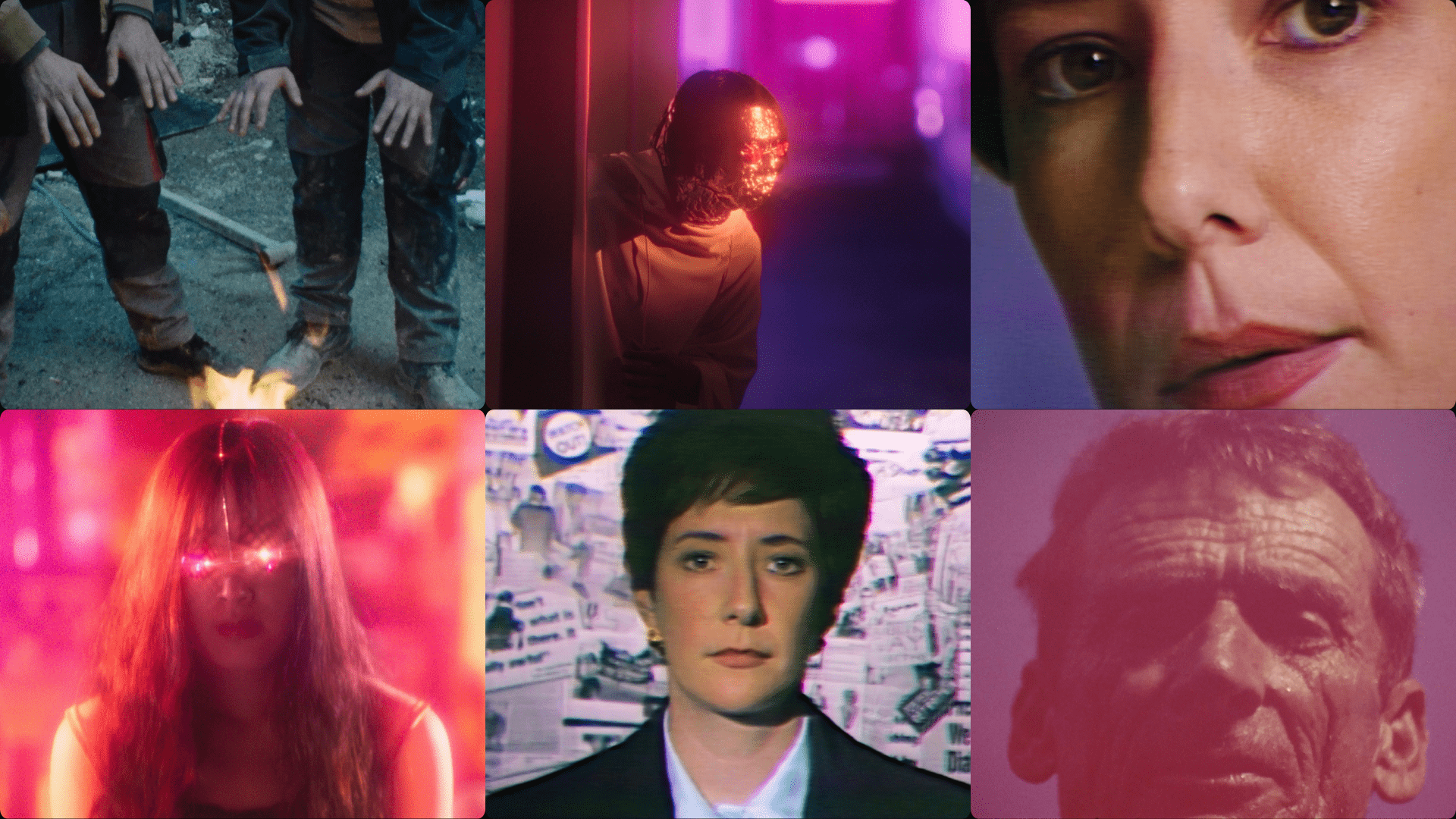
“To have this recognition, I was most happy that these people are seen and the stories are heard.”
In his poetic documentary Workers’ Wings, director Ilir Hasanaj gives voice to veteran manual labourers, recounting their workplace accidents and the silent absence of care from their employers. Quoting the jury, “The film’s formal elegance and restraint are impressively infused with subtle and captivating aesthetic qualities – chromatic, rhythmic and haptic.” Ilir was surprised and touched when he won, emphasising that: “it’s beautiful because we made this film for the workers to be seen and to be able to have some sort of impact. To have this recognition, I was most happy that these people are seen and the stories are heard.” When asked about his overall experience Ilir characterised IFFR as “a really humble festival, very warm with great quality screenings”, while also giving a shout out to the passion and work ethic of the programmers.
“I had like a wish list after Rotterdam and then once I got the award, those festivals came to me”
Beyond the personal memories, winning the Tiger Short Award had a transformative impact on the winners’ careers. Naween shared, “I still have screenings up until next February…You know it’s kind of funny because I had like a wish list after Rotterdam and then once I got the award, those festivals came to me.” Similarly, Frank reflected: “that definitely saved money and time and also opened up the film to kinds of festivals or places I hadn’t heard of that wouldn’t have been on my list anyway.” On the impact of winning, Ilir also mentioned that a producer approached him for a possible collaboration and that he was contacted by several media while also getting “a really good review from The Film Verdict.”
The IFFR Pro Hub supports emerging filmmakers beyond the screen through a programme of panels, workshops and mentorship designed to introduce them to the international industry and make the next steps in their careers. Frank explains that in one of the Pro Hub sessions he met the producer of his next film. His advice is “take advantage of all the Pro Hub and mentorship meetings. Also, utilise Pro Connect, where you can find other people’s contacts, it’s especially handy when working on a new film.” On the same note, Naween mentioned that the one-to-one mentorship with Marina on writing scripts for a feature film was “life-changing”, as it aligned perfectly with his plan to create a feature film.
Naween also gave a shout out to how the Pro Hub helped give him an understanding of the wider film industry. As part of the Pro Encounters programme, a series of networking round tables where filmmakers and professionals meet and connect with industry experts, the Pro Hub organises a session to connect filmmakers in the selection with programmers, distributors and key industry experts from the short film community. Naween explained how useful this was for him, “because I don’t know the ecology or the nature of post IFFR screenings and what kind of film festivals would take a look.”
“I like the diversity, and I like to get to know about others’ work.”
When asked about an experience with Pro Hub sessions, Ilir highlighted a Pro Dialogue panel discussion on archives featuring fellow Kosovan filmmaker Norika Sefa, director of Like a Sick Yellow, on artists and archives featuring “I attended my friend Norika’s discussion about feminism and films, where creatives from different fields – museum curators, filmmakers, organisers – shared their perspectives. I like the diversity, and I like to get to know about others’ work.”
“You’re going through the same things sometimes. Issues with being inspired, sometimes with money trouble.”
Across all the interviews, it was beautiful to hear that the festival fostered the creation of a micro-community, a space for support, inspiration, exchange of knowledge and feedback. Connections made from sharing this common experience have been evolving into long-term relationships, offering a lasting network for collaboration and growth. Naween remembers sending a personal invitation to 30 programmers, “almost 60% of people replied and they came to my premiere screening, and we have kept in touch ever since.”
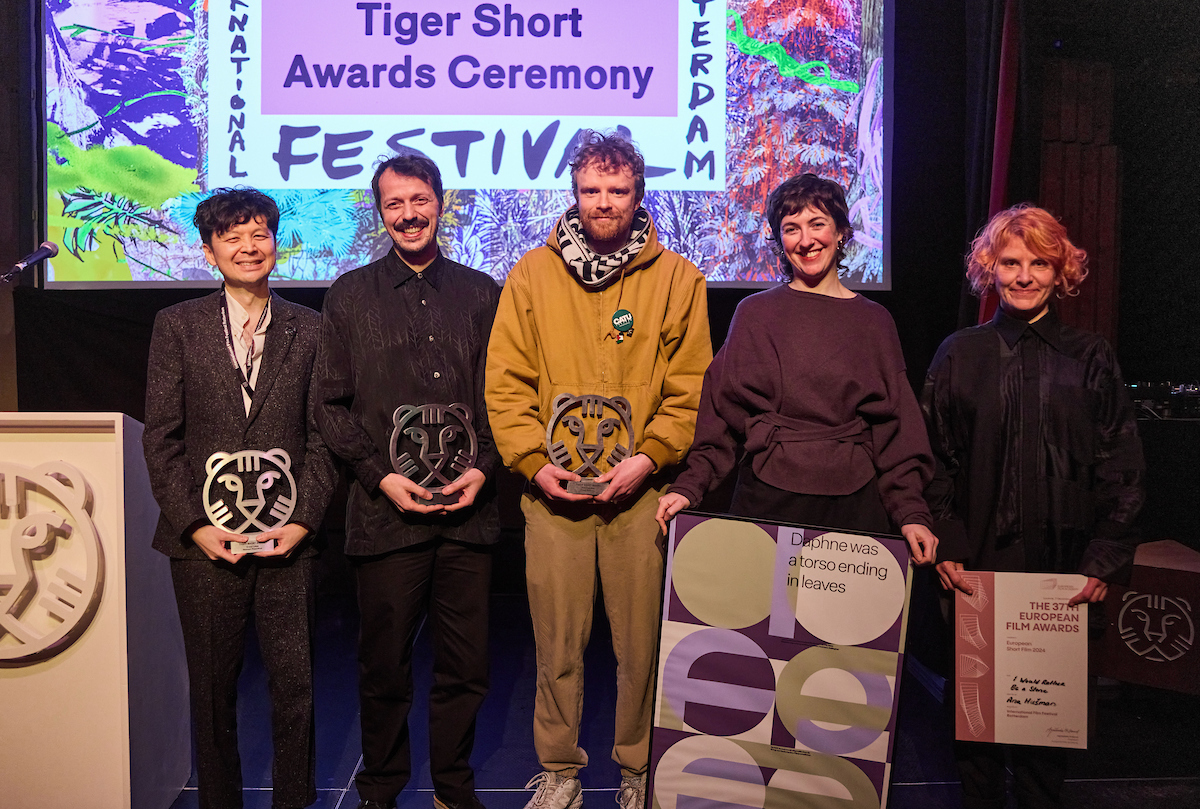
On meeting Frank Sweeney after IFFR at Curtas Vila do Conde in Portugal, Ilir said: “it felt nice also because you feel like you’re not alone. You’re going through the same things sometimes. Issues with being inspired, sometimes with money trouble, and just share”, showcasing the sense of belonging and mutual support among emerging filmmakers. Sweeney on his side also paid tribute to the filmmakers who he kept in touch with saying, “whether that’s funding or scripts or residencies…there’s some residencies or screenings that have come through other filmmakers I met. And then the other way around… yes, we’re trying to kind of help each other.”
“People trust your work and vision more.”
Talking about future plans, Naween Noppakun confided to us that he has been busy developing his first feature film for the past six months but also being involved in other side projects related to XR, stating that “winning at IFFR is also meaningful because you can reach producers and then you know, have some credits. People trust your work and vision more.” Ilir Hasanaj is also working on his first feature fiction about an unsolved murder concerning an activist who was killed by the secret service in the ’80s, while Frank Sweeney is close to finishing the script of his next film, with plans to begin shooting at the end of January. He intends to start editing right after he comes over to Rotterdam for the 54th edition of IFFR, this time as a jury member for Tiger Short Competition.
A list with articles
-
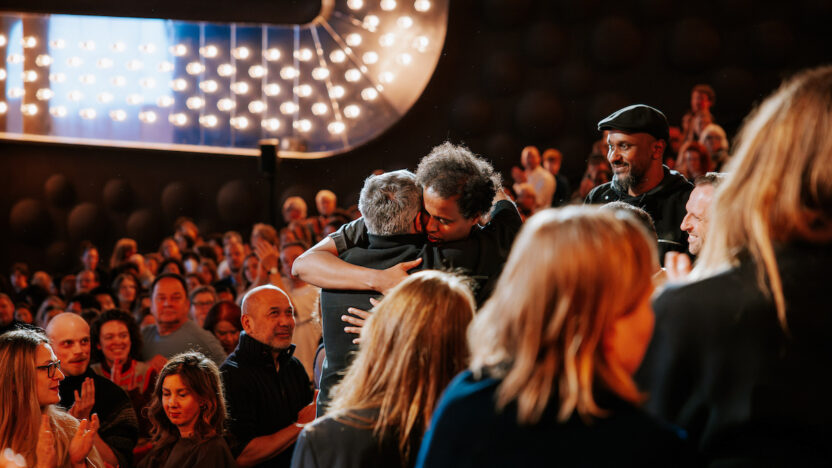
IFFR closes its 55th edition celebrating an uptick in new, younger audiences and industry attendees
Published on:-
News
-
Press release
-
-
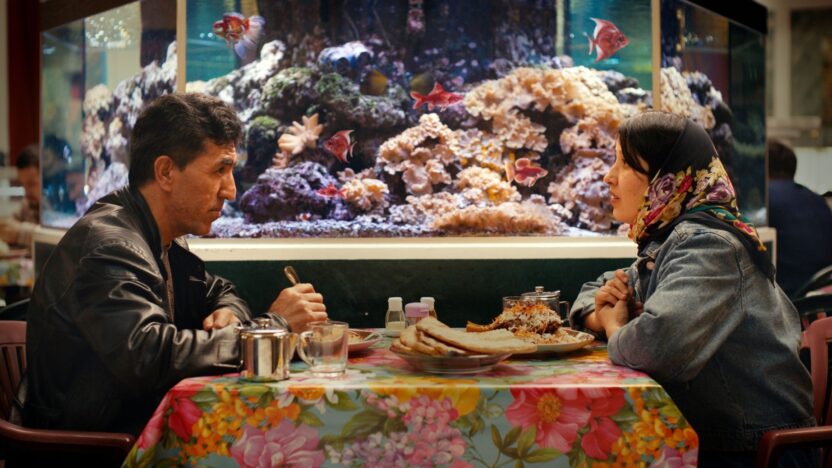
Shahrbanoo Sadat’s No Good Men opens Berlinale 2026 among strong HBF and CineMart lineup
Published on:-
CineMart
-
Hubert Bals Fund
-
IFFR Pro
-
-

